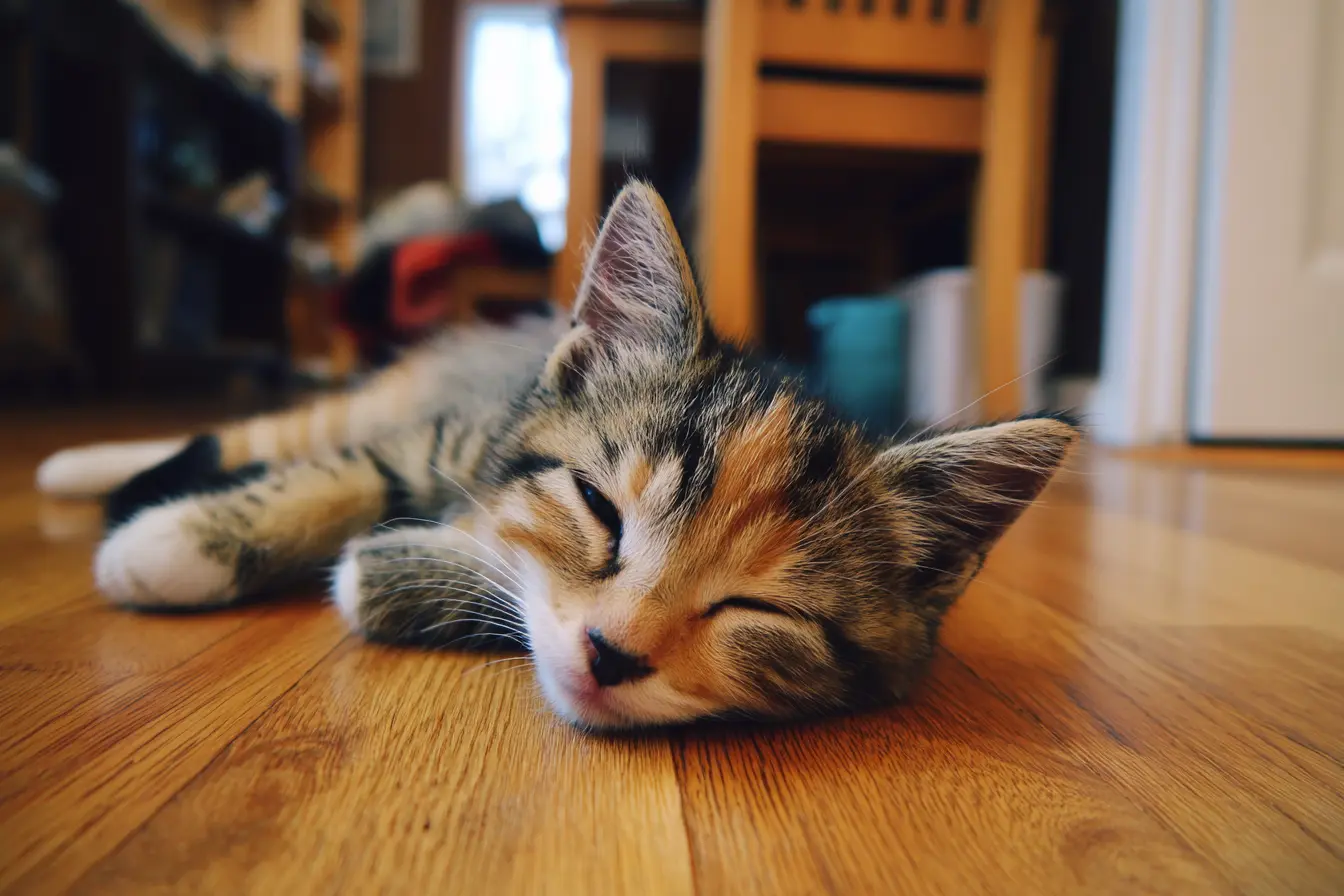
Caring for a New Litter of Kittens: A Complete Guide for Cat Owners
The arrival of a litter of kittens can be both exciting and overwhelming, especially if you are a first-time cat owner. Whether the birth was planned or unexpected, proper care during the first few weeks is crucial to ensure the health and wellbeing of both the kittens and their mother. This guide explains everything you need to know about caring for a new litter.
The First Hours After Birth
In most cases, the mother cat (queen) will instinctively know what to do. Immediately after birth, she should:
- Clean the kittens by licking them
- Chew through the umbilical cords
- Encourage the kittens to nurse
Your role is mainly to observe quietly. However, you should seek veterinary help immediately if:
- The kittens are not breathing or appear weak and cold
- The mother ignores or rejects them
- There is heavy bleeding or signs of distress in the mother
Creating a Safe Nesting Area
Newborn kittens need warmth and security. You can provide this by:
- Nesting box: Use a large cardboard box or a cat bed with high sides. Line it with soft, clean blankets or towels.
- Quiet environment: Keep the area away from noise, children, and other pets.
- Warmth: Newborn kittens cannot regulate their own body temperature. Ensure the room is warm, ideally between 24–27°C. Avoid direct heating devices that could burn.
If the mother has chosen her own spot, you may only need to make it more comfortable and safe.
Feeding and Nutrition
For the Mother Cat
The queen will need extra nutrition while nursing. Provide:
- High-quality kitten food: Rich in calories and nutrients, this supports milk production.
- Constant access to water: Hydration is essential for milk supply.
- Frequent meals: Offer several small meals throughout the day.
For the Kittens
Kittens should begin nursing within the first one to two hours. Mother’s milk provides essential antibodies and nutrients. If kittens cannot nurse:
- Seek veterinary advice immediately
- Use a specialist kitten milk replacer (never cow’s milk) and a kitten feeding bottle or syringe
Monitoring Growth and Development
Healthy kittens should:
- Be warm, wriggly, and vocal when briefly handled
- Feed every two to three hours in the first weeks
- Double their birth weight by around two weeks of age
Weigh kittens daily with kitchen scales to monitor steady growth. Any kitten that fails to gain weight or appears weak should be seen by a vet.
Hygiene and Health
- Clean bedding regularly: Replace blankets or towels every couple of days to keep the nest fresh.
- Check for infections: Look for redness, swelling, or discharge in kittens’ eyes, noses, or umbilical areas.
- Parasite prevention: Do not use flea or worm treatments on kittens unless specifically approved by a vet. The mother should be treated with safe products to reduce risk.
Socialisation and Handling
For the first two weeks, limit handling to short, gentle checks. After this period:
- Handle kittens daily for short periods to help them become accustomed to humans
- Gradually introduce household noises, gentle play, and new experiences
- Keep handling calm and positive to encourage confident, friendly cats
Weaning Kittens
At around four weeks of age, kittens start experimenting with solid food:
- Offer a shallow dish of softened kitten food (mixed with water or kitten milk replacer)
- Gradually reduce the liquid content as they adjust to eating solid food
- Continue nursing alongside weaning until around eight weeks
Veterinary Care
Kittens should have their first vet check at a few weeks of age. Standard care includes:
- Worming treatments: Usually starting at two weeks of age and repeated regularly
- Vaccinations: Typically given at eight to nine weeks, with boosters a few weeks later
- Health checks: To ensure normal growth and detect any congenital issues early
Rehoming Kittens
Kittens should remain with their mother until at least eight weeks old, ideally ten to twelve weeks, to ensure they are physically and socially ready. Before rehoming:
- Ensure they are eating solid food confidently
- Provide early socialisation experiences
- Discuss neutering, microchipping, and vaccinations with your vet
Supporting the Mother
The queen also needs ongoing support:
- Provide high-quality food throughout lactation
- Offer her a quiet, safe space away from too much disruption
- Monitor her health, including checking for signs of mastitis (swollen, painful mammary glands) or exhaustion
Conclusion
Caring for a new litter of kittens requires patience, observation, and preparation. By providing a safe environment, good nutrition, and gentle socialisation, you give kittens the best possible start in life. With regular veterinary care and support for the mother, you can ensure the whole family thrives until the kittens are ready for their forever homes.
Vets near you
Speciality vets
- Aquatics vet specialists
- Birds vet specialists
- Camelids vet specialists
- Cats vet specialists
- Cattle vet specialists
- Deer vet specialists
- Dogs vet specialists
- Equines vet specialists
- Exotic vet specialists
- Goats vet specialists
- Pigs vet specialists
- Poultry vet specialists
- Sheep vet specialists
- Small Mammals vet specialists
- Wild vet specialists
Vet facilities
- Accessible by public transport
- Blood testing
- Car park nearby
- Client car park
- Dentistry
- Diagnostic imaging
- Disabled public access
- Flea and worm treatments
- Microchipping
- Mobile services
- Neutering
- Open at weekends
- Out-of-hours service
- Referral interests
- Referrals only
- Street parking outside
- Toilets available
- Vaccinations



